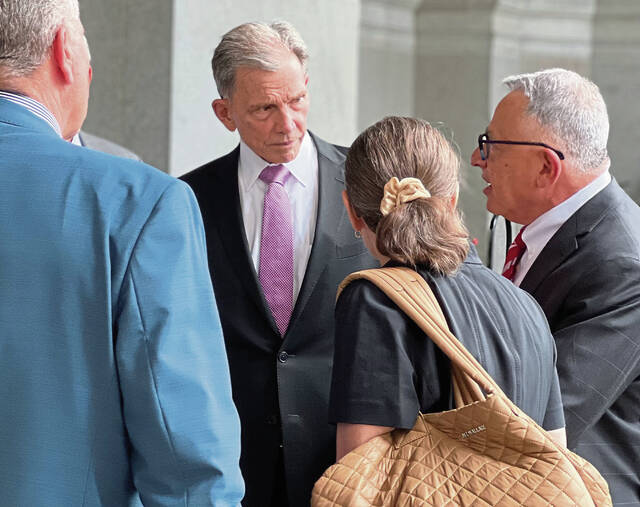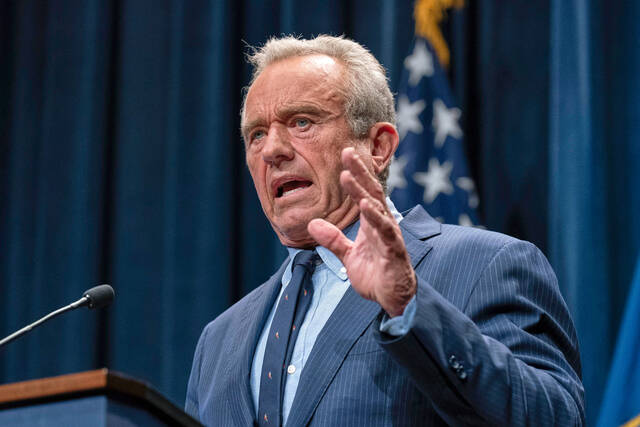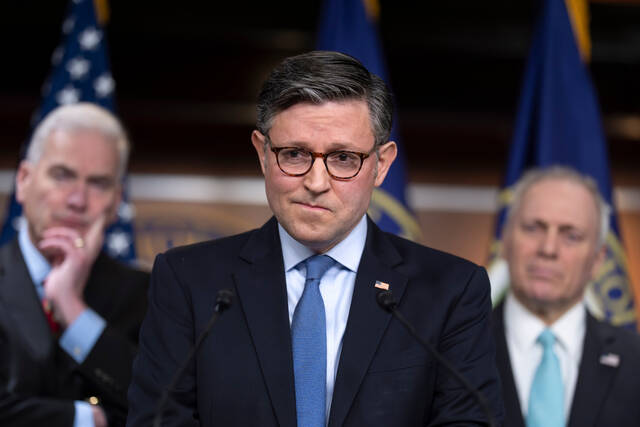The government office that fights Medicare fraud has put UPMC and one of its star surgeons on a “high-risk” list after determining that they pose a “significant risk to federal health care programs and beneficiaries.”
U.S. officials took the action after Pittsburgh’s multi-billion-dollar health system settled a sweeping Medicare fraud case last month — but rejected signing an agreement that would put it or its renowned doctor under extra government oversight.
“This is a huge deal,” Reuben Guttman, a Washington, D.C. lawyer who has litigated similar Medicare fraud cases, said Thursday. “Citizens of Pittsburgh should be outraged.”
The settlement, reached after a two-year investigation led to a federal lawsuit, resolved fraud allegations against UPMC, its physicians practice, and Dr. James Luketich. Luketic is head of its cardiothoracic surgery department and one of its highest-paid and most prolific surgeons.
As part of the settlement, the government asked the defendants to sign paperwork — known as a corporate integrity agreement — that would place them under additional oversight. They refused.
“It was not necessary,” Paul Wood, a UPMC spokesman, said Thursday.
The federal prosecutor’s office in Pittsburgh would not release a copy of the proposed agreement.
Wood said the civil case settlement, hammered out with federal prosecutors and the U.S. Department of Health and Human Services’ Office of Inspector General, was negotiated in good faith.
The defendants denied wrongdoing.
But part of the settlement required what Wood called a “carefully tailored corrective action plan” for Luketich. It also included provisions for a yearlong audit of Luketich’s bills to Medicare, he said.
Guttman said that UPMC should want to reassure potential patients that it’s doing what the government wants — especially because that same government pays UPMC tremendous sums each year through taxpayer-funded Medicare and Medicaid.
In a worst-case scenario, Guttman said, the government could exclude UPMC and Luketich from the Medicare and Medicaid programs — huge revenue generators for the health system.
“They could basically say, ‘Sorry, you’re not going to get Medicare/Medicaid reimbursement, you’re out of the program,” Guttman said.
While it’s unlikely that the government will boot UPMC or Luketich from participating in those programs, Guttman believes that the regulators will press for more oversight.
“Exclusion is the nuclear bomb, but there’s all kinds of creative things they could do in between,” Guttman said.
While the government’s case addressed claims of large-scale billing fraud by Luketich and lack of adherence to federal Medicare rules, prosecutors’ accusations went far beyond the numbers.
They alleged that Luketich placed people at grave risk by performing multiple complex surgeries at the same time, moving between operating rooms and keeping patients under anesthesia longer than necessary.
All the while, prosecutors said, UPMC staff and executives knew what was happening.
Prosecutors cited two instances in which they said people lost limbs because of Luketich’s actions.
While admitting no wrongdoing, UPMC agreed to pay $8.5 million.
Jacob T. Elberg, a former federal prosecutor who specialized in health care fraud, said that by refusing to enter into the proposed agreement, UPMC was taking a risk.
If the government were to make new fraud allegations, Elberg said, it might be inclined to come down more harshly on the hospital system that spurned an integrity agreement.
On the other hand, said Elberg, a law professor at Seton Hall University in Newark, N.J., UPMC has good reason to want to reject the government’s proposal.
“Corporate integrity agreements are expensive, they’re intrusive and they’re onerous,” Elberg said.
UPMC’s rejection marked the sixth time since October 2018 that defendants who have reached civil settlements with the government have refused additional oversight, according to the Office of Inspector General.
These defendants are classified as “high risk-heightened scrutiny.”
Meanwhile, well over 100 medical institutions have signed the agreements.
The refusal to sign integrity agreements is a recent phenomenon, one that is somewhat baffling, according to Elberg.
“If the government thinks this is appropriate,” Elberg said critics have asked, “why are they giving people the choice?”








